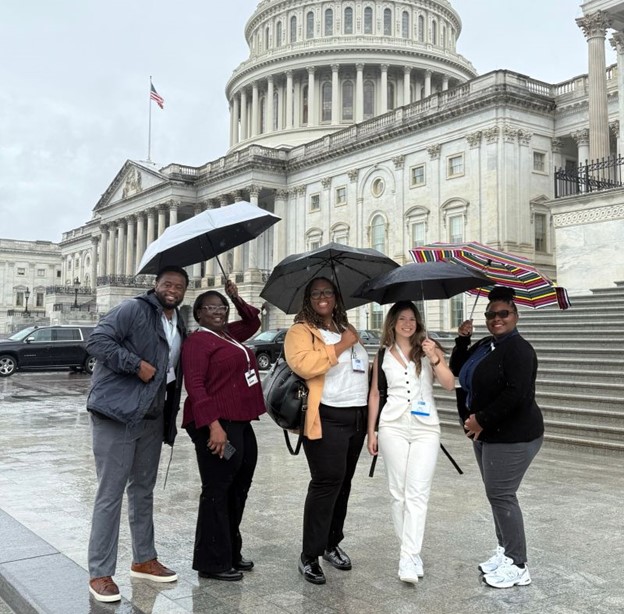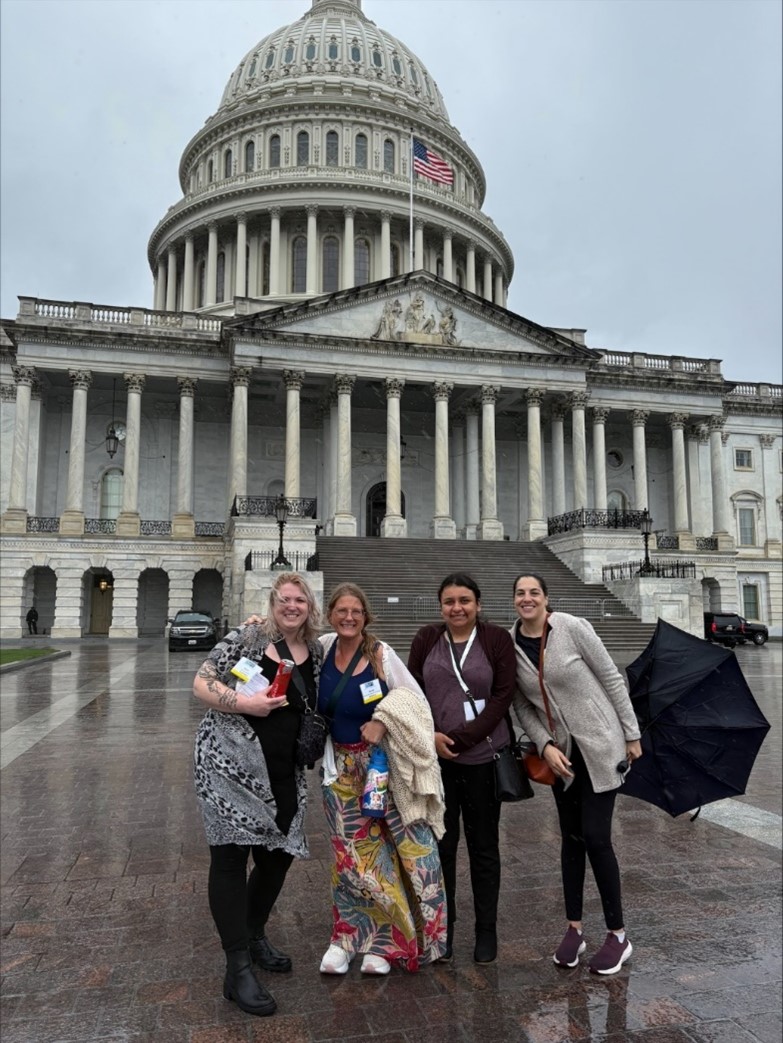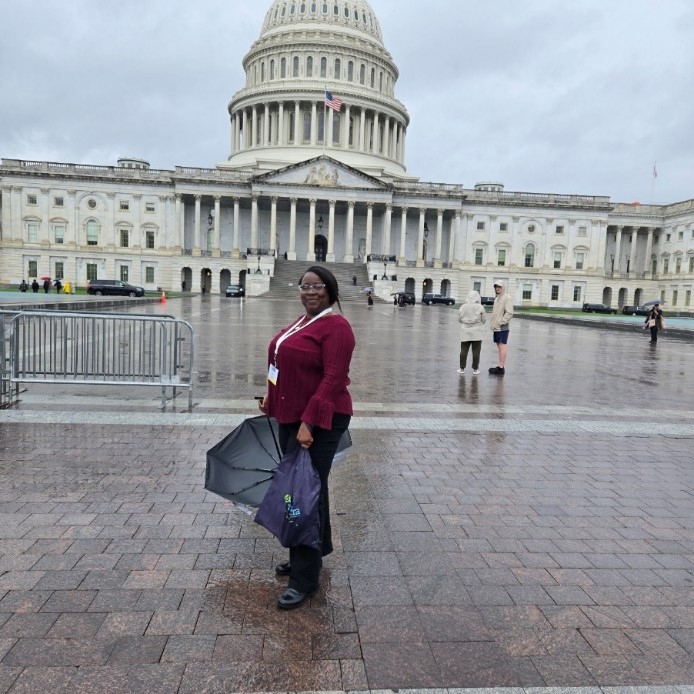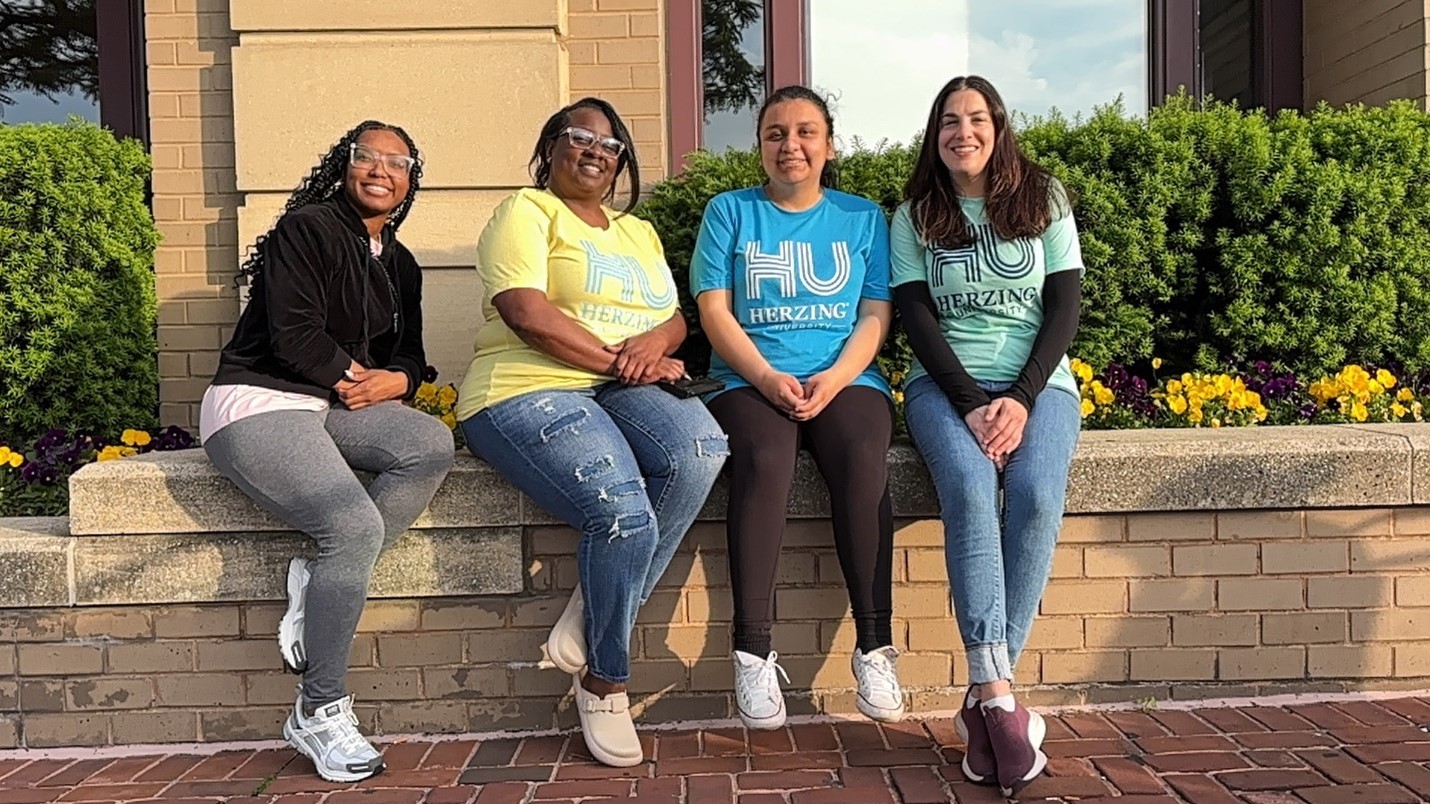Latest
From Online Classroom to Capitol Hill: Herzing MSW Students Advocate for Change
Jun 10, 2025
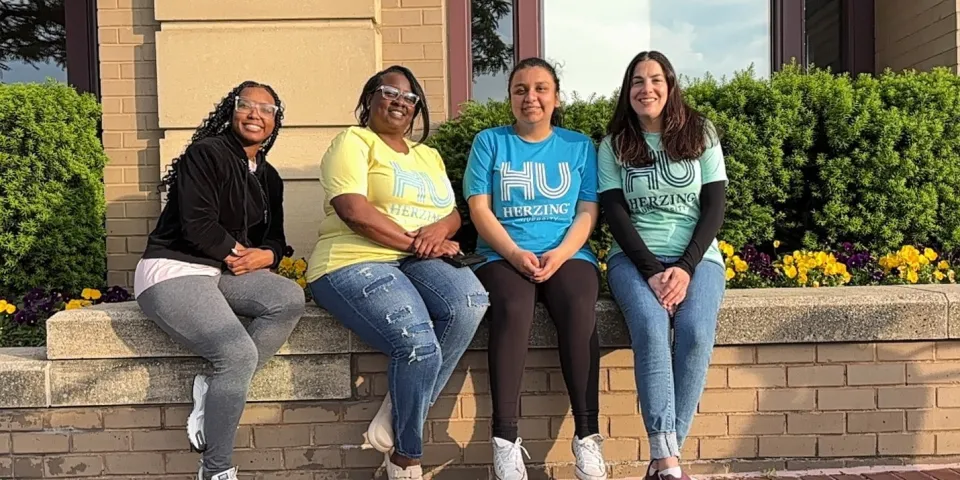
Master of Social Work (MSW) students are trained to support individuals, families, and communities and engage in system-level changes. One of the most impactful ways to exercise change is through policy advocacy, and there is no better place than Capitol Hill.
On May 13, 2025, four Herzing MSW students in the Substance Use Disorders Education and Leadership Scholars (SUDEALS) program traveled to Washington, D.C., as part of the annual Council on Social Work Education (CSWE) Fellows Forum. The CSWE Fellows traveled to Capitol Hill to advocate on behalf of funding educational resources critical to current and future social workers in the United States, including Public Service Loan Forgiveness, Pell Grants, Substance Abuse and Mental Health Services Administration (SAMHSA) funding, and more. Fellows met with their local lawmakers and staff, urging them to prioritize issues related to social work, education and funding.
Second from Left: Dalila Parrish
SUDEALS
Herzing MSW program applied to and received an award from the CSWE SUDEALS program funded by the SAMHSA ORN subaward via the American Academy of Addiction Psychiatry. The goal of ORN is to ensure the enhancement and expansion of evidence-based prevention, treatment, and recovery support programs/services.
The program develops a cohort of social workers specializing in substance use disorders by engaging MSW students, together with practice, research and policy. Throughout the program, the selected schools will continue to implement CSWE’s Practitioner Education in Substance Use and Misuse: Competency-Based Resources Guide in practicum placements or seminars. Herzing University MSW Program serves as one of these selected schools. Each year, the SUDEALS cohort participates in the Fellows Forum in Washington, D.C., to share knowledge and advocate for improved access to substance use disorder treatment and services.
SUDEALS Cohort 1
The four MSW students in the first cohort put in a lot of work before the Fellows Forum this year. In preparation, they met with the Project Director, Dr. KaRon Spriggs-Bethea, Professor of Social Work, weekly to discuss different topics in substance use, policy and advocacy. Each student discussed how they have been implementing substance use assessment and treatment in their practicum placements. They asked questions about how to incorporate substance use assessment into their practice without being judgmental or making clients uncomfortable.
Dr. Spriggs-Bethea stated, “I am so grateful that our students have this opportunity to not only learn more about substance use assessments and treatment, but that they can spread this knowledge to help the communities that they are working in. I am equally excited that they can go to Capitol Hill. This is going to be a great learning experience and an opportunity to continue to implement their skills.”
Why MSW Students Belong on Capitol Hill
Social workers are uniquely positioned to inform policymakers. Our education and experience give us firsthand insight into the barriers clients face and the challenges of navigating services. When MSW students advocate on Capitol Hill, they bring real-world experience from their practicums and academic studies to the policymakers creating the laws.
Advocacy is a professional responsibility that is embedded in our Code of Ethics. The National Association of Social Workers (NASW) emphasizes social justice as a core value, calling social workers to challenge social injustice and pursue policies that improve access to resources. Visiting Capitol Hill transforms that value into tangible action.
Advocating as an MSW student is not only about professional growth, but also a reflection of our ethical responsibility. The NASW Code of Ethics calls us to challenge injustice and advocate for laws and policies that promote human well-being and social equity. Advocacy is how social workers put these values into action. Hear from two of our Herzing MSW students below:
- “My experience with the SUDEALS program exceeded my expectations. I don't think I understood the gravity of walking through Capitol Hill, being inside those buildings, and talking to staffers. It was a once-in-a-lifetime experience to be able to advocate in person, especially during these trying times. I learned about policy as it relates to mental health and substance abuse. I learned how advocacy is occurring right now on the hill and the impact the cuts will have on individuals as well as society as a whole.” - Sarah Grossman, MSW Candidate – Phi Alpha
- Being able to participate in the SUDEALS program and the Fellows Forum was an opportunity I feel extremely grateful to have been given. Attending the Capitol Hill visits gave me a new motivation to advocate for social workers and our clients.” Zarahi Morales-Estrada, MSW Graduate
Herzing MSW students are on the right side of the picture. From left to right: Zarahi Morales-Estrada. Sarah Grossman
Reducing the Stigma
One particularly urgent area of advocacy is access to substance use treatment. Across the country, MSW students working in healthcare, schools, community agencies and correctional settings witness the devastating consequences of untreated substance use disorders. Many clients are unable to access timely, affordable or culturally appropriate services. Barriers such as stigma, lack of insurance, long waitlists and criminalization further complicate recovery.
When advocacy for substance use treatment happens on Capitol Hill, a voice is given to those often silenced by stigma. Hear from another Herzing MSW student below:
“I had a great experience in Virginia, where I had the opportunity to lobby with our state representatives about mental health and veteran issues in my district. This unique experience allowed me to gain valuable knowledge and practical insights that complemented what I have been learning in my policy class regarding effective communication with stakeholders.
I learned that when requesting a meeting, you may not always meet with the representative; often, you will speak with their assistant. It’s important to make the most of that time by being genuine and speaking from the heart rather than just citing statistics. This approach resonates more with them.
During my meetings, I shared personal experiences and insights from my work with children in mental health. I observed that the stigma surrounding treatment has decreased significantly. I have seen firsthand how children and teenagers are increasingly open about receiving help from mental health centers, talking openly about it with their friends and encouraging others to seek support.
Sharing this information with Alabama's District 7 U.S. House Representative, Terri Sewell, and U.S. Senator Tommy Tuberville was meaningful and increased my confidence in advocating for my community on various levels.
Additionally, collaborating with other MSW and doctoral students offered different perspectives on the issues we were advocating for, allowing us to share knowledge and learn from each other.” Dalila Parrish, MSW Candidate - Phi Alpha
Herzing MSW student Dalila Parrish
Teachable Moments
Social Work students develop essential advocacy skills throughout our program by engaging in community meetings, reaching out to elected officials, participating in town halls and authoring op-eds and policy analysis papers. These experiences are foundational for all social workers and prepare students to influence change at multiple levels.
The SUDEALS initiative, which included advocacy on Capitol Hill, provided a meaningful extension of classroom learning, offering students the opportunity to put their knowledge into practice in a real-world setting:
- Empowerment: Students discovered that their voices hold power. Advocacy is not limited to seasoned professionals. Everyone is part of the policy process.
- Skill Development: Through advocacy, students strengthened critical competencies including communication, analytical thinking and policy evaluation.
- Systemic Impact: Student perspectives offered valuable insights that helped bridge the gap between legislation and the realities faced by individuals and communities.
- Promoting Service Access: Whether advocating for substance use treatment, mental health services, or child welfare reform, student advocacy efforts supported more access to vital services.
“What I have learned from my experience in the SUDEALS Program and what will stick with me as I begin my professional social work journey is that relapse is part of an intricate process of recovery that does not just apply to substance use but to mental health in general. Once you understand this, you will feel more confident in not just the client’s ability to change but in your abilities as a clinician.”-Trashawn Anderson, MSW Candidate
Moving Forward
Social workers have firsthand knowledge of the structural challenges faced by vulnerable populations. Through our academic coursework and field placements, we see the real-world impact of inadequate funding, restrictive policies and gaps in services. Capitol Hill may seem far removed from the day-to-day realities of social work practice, but it is where critical decisions are made that affect the clients and communities we serve.
Capitol Hill is a platform for advocacy for future social workers who believe in transformative systems change. MSW students must be ready to advocate for the policies that will shape the future of our profession and the well-being of the people we serve.
Herzing MSW SUDEALS students from left to right: Trashawn Anderson, Dalila Parrish, Zarahi Morales-Estrada, Sarah Grossman
Learn More About Our MSW Program
BLS pay estimates calculate the median annual wage for various occupations. Per the BLS the median wage for an occupation is: "The wage at which half of the workers in the occupation earned more than that amount, and half earned less. Median wage data are from the BLS Occupational Employment and Wage Statistics survey." Bureau of Labor Statistics (BLS), U.S. Department of Labor, Occupational Outlook Handbook 2024. BLS median wage estimates do not represent entry-level wages and/or salaries. Multiple factors, including prior experience, age, geographic market in which you want to work, and degree level and field, will affect career outcomes, including starting salary and earnings as an experienced employee. Herzing neither represents that its graduates will earn the median salaries calculated by BLS for a particular job nor guarantees that graduation from its program will result in a job, promotion, particular wage or salary, or other career growth.
Latest
Recent Blog Posts
Subscribe to our Newsletter
Get the latest news you need to know, from study hacks to interview tips to career advancement. Have it delivered right to your inbox biweekly.

